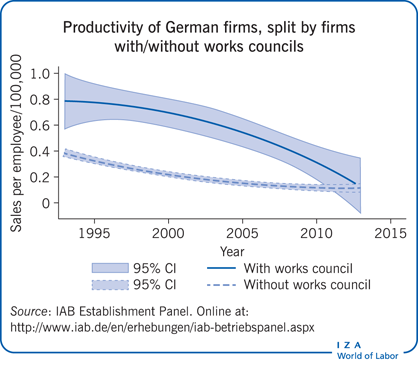Elevator pitch
The German model of co-determination (Mitbestimmung) with works councils, in which workers are involved in the management of a company, was a role model for other countries for many years. However, since the 1990s the appeal of works councils has been declining, to the extent that now even employees are sometimes voting against representation. This was recently demonstrated by workers at the Volkswagen factory in Chattanooga, Tennessee, who voted against union representation. An important question for firms and for policymakers is whether the adoption of a works council has a positive influence on a firm’s productivity and what the consequences are for a firm’s profits.

Key findings
Pros
Works councils improve information flows between management and workers.
Works councils lead to a higher investment in firm-specific human capital.
Workers have more influence and control over management decisions and policies of the firm.
More trust is generated between employees and employers and greater job satisfaction developed.
Cons
Costs are incurred by the firm for the paid release of council members from employment.
Works councils can lead to increased regulation and lagged decisions.
Works councils can lead to conflicts between the works council and management.
There is less investment in physical capital.